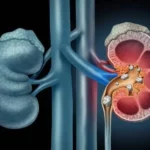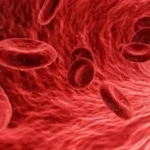Nutrients play lots of roles in our body to maintain overall health, and this must be in your diet to prevent mental illness and reduce the dysfunction induced by internal or external factors.
Vitamins are micronutrients that assist with performing significant functions in our body.
Studies have shown that diet and nutrition are critical not only for body composition but also significant effects on mood and mental well-being (1)
Lack of nutrients in the body affects both physical and mental disorders like depression, bipolar disorder, schizophrenia, and obsessive-compulsive disorder (OCD).
Depression is the most common mental disorder, which affects approximately 20% of the world’s population (2).
Low levels of Serotonin in the brain are associated with depressive disorder and treatment for depression aim to increase these level (3).
Also, deficiencies in neurotransmitters such as serotonin, dopamine, noradrenaline, and γ-aminobutyric acid (GABA) are often associated with depression (4) (5).
What Do Nutrients Do?
Contents
Eating a well-maintaining diet (which includes nutrients, vitamins) comes out with many benefits such as:
- Maintain sugar level
- Prevent heart attack
- Increased energy (6)
- Strengthen the bone health
- Keep skin and hair healthy
- Maintain all organ function
- Regulate mood
- Promote gut health

Essential Nutrients That Must In Your Diet To Prevent Mental Illness
According to the study, the most common nutrient deficiency seen in patients with mental disorders is omega-3 fatty acids, vitamin B, minerals, and amino acids that are messengers to neurotransmitters (7) (8).
Here are top nutrients which you should include in your diet which include:
Vitamin B9 (Folate)
Folic acid is the synthetic form of water-soluble vitamin B9, also known as folate.
Both folate and folic acid promote neurotransmitters including dopamine, serotonin, and norepinephrine, all of these are essential for good mental function and performance (9).
A study showed that 500 mcg of folic acid increased the effectiveness of the antidepressant medication.
In addition to omega–3 fatty acids, vitamin B (e.g, folate) and magnesium deficiencies have been linked to depression (10) (11).
Food that contains vitamin B9 includes:
- Green vegetables
- Citrus fruit (lemons, grapefruit, limes, and several types of oranges)
- Beans
- Whole grains
- Yeast and nuts
- Eggs
- Cheese
- Legumes
Several vitamin B are cofactors in homocysteine (is a type of amino acid) metabolism, also reducing inflammation caused by high levels of this amino acid (11).
Omega-3 fatty acid
Researchers found that consumption of omega-3 fatty acids from fish and other sources to an increasing trend in the incidence of major depression (12)
Studies evidence shows a link between high fish consumption and low incidence of mental disorders.
In clinical trials, omega-3 polyunsaturated fatty acids prevented cortisol to increase and reducing the symptoms of occupational burnout in a double-blind (13).
Research has also shown that a moderate dietary intake of omega-3 fatty acids can slow the age-related MCI and protect against the risk of neurodegenerative dementia (14)
It also shows that omega-3 fatty acids not only reduce the symptoms of depression in comparison to standard medicine but also anxiety and sleep disorders when compared to placebo (15).
Carbohydrates
Carbohydrates are naturally occurring polysaccharides and play an important role in the structure and function of an organism (15)
Research has shown that diets low in carbohydrates and high in fats and proteins were allied with a greater risk of mood disorders including anxiety and depression.
Some other studies also suggested no effect between high carbohydrate and high protein intakes and depression (16).
However, A cross-sectional study of Japanese men revealed that neither carbohydrate nor fat intake was allied with depressive symptoms (17).
In addition, consumption of a low carbohydrate diet along with high protein has been suggested for obese women (18).
Here are certain food that is rich in carbohydrates such as:
- Banana, sweet potato
- popcorn
- soft drinks
- beans
- Mango
Calcium
Research has shown that lower dairy and calcium intake are allied with higher perceived stress and other mental health issues such as anxiety and negative mood (19) (20) (21).
Calcium is vital for healthy bone and teeth, also plays a vital role in blood clotting, regulates normal heart rhythms, helps in muscle contraction, and nerve function (22)
Calcium regulates the neurotransmitter system and release, which play important roles in neuronal activation and mood regulation (23) (24).
Research has also shown that calcium is also required to produce serotonin, and as we know that low levels of serotonin lead to depression.
Serotonin level leads to happiness or low mood, and for serotonin production, calcium and tryptophan are both required (25)
NOTE: Dairy products including milk, cheese, curd, etc, are an excellent source of calcium, and promoting dairy intake can improve certain indicators of mental health (26).
Iron
Iron is also essential micronutrient, which make hemoglobin (a protein in RBC that carries oxygen from the lung to the other part of the body (27).
Lack of iron deficiency leads to anemia (a condition, where a person doesn’t have enough healthy RBC, which can lead to irregular heartbeat, and it can become a risk of a heart attack.
Research by Lozoff et al. found that children with severe iron deficiency had a greater risk of anxiety, depression, and attention problems.
Some animal studies have shown a link between iron deficiency anemia and alterations in serotonin, gamma-aminobutyric acid, and neurotransmission (28)
Here is some food that is rich in iron which includes:
- Increase vitamin B intake
- Red meat
- Seafood
- Dark green leafy vegetables such as spinach, kale, swiss chard, collard, and beet greens
- Peas
- Apple, banana, and pomegranate
Iodine

A well-known study showed that low selenium and urinary iodine concentration levels may contribute to anxiety and depression development.
Iodine is required for the thyroid hormone, this hormone control metabolism, also pregnant lady should consume this because it plays a role in the baby’s brain, and bone development (29).
Anxiety and depression are also associated with chronic diseases such as thyroid function disorders, and as we know iodine deficiency leads to a thyroid issue (30).
Here is the most common food that is rich in iodine intake these are:
- Seaweed
- fish like tuna
- dairy products such as yogurt, cottage cheese, milk
- Iodized salt
- shrimp
- eggs
- Lima beans
Chromium
Many studies on the association of chromium with human depression have been recorded which indicates the importance of this micronutrient in mental health (31) (32).
Chronium is an trace mineral may help to keep blood sugar level normal by improving the way the body uses insulin (33).
NOTE: Chromium contain foods such as – brewer yeast beer, wine, grapes juice, whole wheat flour, orange juice, tomato juice, apple, green beans and supplements.
The most common side effect with chromium supplement are insomnia, tremor, stomach discomfort, vivid drems, nausea, and vomitting.
Another study showed that carnitine and chromium use for 12 weeks on women with PCOS had beneficial effects on mental health parameters.
Lithium
It has been used for Half a century for bipolar disorder due to its antimanic, antidepressant, and antisuicidal properties (34).
Studies show that lithium can significantly reduce suicide risk, which also helps prevent future manic and depressive episodes (35).
Several studies have shown that lithium has an specific anti-suicidal effect in mood disorder, which also reduce the chance of self-harm (36)
Here are common food that contain Lithium such as:
- Cereals
- Potato
- Tomato
- Cabbage
- Mineral water
- Found in some spices such as nutmerg, coriander seed
It also suggests that Li intake may also protect nervous system, and its anti-inflammatory, and antioxidants effect as well through the regulation of the metabolism of the nervous system (37).
Magnesium
Researchers have shown that a magnesium-deficiency diet contributes to the enhancement of anxiety-like behavior.
Studies have shown that magnesium has a positive role in mental health including reducing neuroinflammation (38) (39).
Research on animals has shown that Magnesium reduces apoptosis by inducing hypoxia-ischemia (type of brain dysfunction) and also prevents synaptic loss of Alzheimer’s disease (40) (41) (42).
Another study showed that food that is rich in magnesium is linked to a reduced risk of depressive disorders or fewer depressive symptoms (43)
Here is food that is rich in magnesium such as – green leafy green vegetables, whole grains, nuts, and fish.
Zinc
Several studies indicated that zinc deficiency in the body leads to the most common mental illness called depression (44).
Zinc is a vital micronutrient mineral that is needed for cell division, cell growth, wound healing, breakdown of carbohydrates, also need for a sense of taste and smell
Studies also suggest that also protects the brain cells against the potential damage caused by free radicals.
In one study, a zinc supplement was used on depression patients, the result has seen improvement in mood, and also acts as a depression resistance (45) (46).
Here is the most common food that is rich in zinc which includes:
- Nuts like almond, sesame, Pumpkin Seeds, Peanuts, and Walnuts
- Whole grain, and wheat
- Seafood like crab, lobster
- Hemp seeds
- Quinoa
- Mushroom
- Spinach
- Cocoa powder
- Almonds
Selenium
A large study review conducted by Dr. David Benton showed that low selenium intake is associated with lower mood.
Selenium is an essential mineral for our body to work properly, which regulates metabolism, and thyroid function also protects our body against oxidative stress.
A study where the patient populations are Intervention with selenium showed that selenium improves mood by reducing the anxiety level (47).
Another study showed that selenium intake is associated with a low risk of depression (48).
Selenium contain food such as – Brazil nuts, seafoods, and organ meats are the richest food sources of selenium, and cereals and other grains, and dairy products (49)



